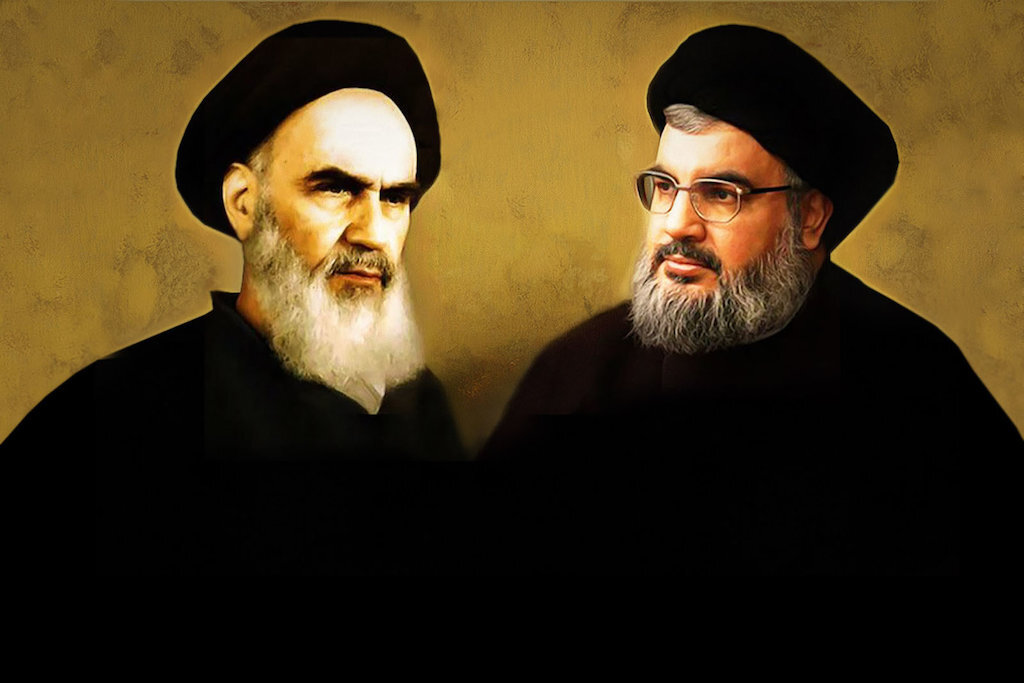Resistance movements owe everlasting gratitude to Imam Khomeini
Imam Khomeini is credited with energizing Palestinian cause in hearts and minds of Islamic Ummah

BEIRUT — On the anniversary of the passing of Imam Khomeini (ra), Hezbollah Secretary-General Sheikh Naim Qassem affirmed that “revolutionary Iran—under the leadership of Imam Khomeini—stood steadfastly alongside the Resistance Front to liberate Palestine and Holy al-Quds.”
The Hezbollah chief emphasized that the Islamic Ummah “is today illuminated by the rays of the pure light of Muhammadan Islam, which Imam Khomeini established through his revolutionary project.”
Sheikh Qassem said, “The late Imam embodied the values ??of faith and rejected injustice, occupation, and subordination,” noting that these principles continue to be a beacon for resistance and liberation movements in West Asia.
The Secretary-General of Hezbollah added: “With the victory of truth over falsehood, we experience hope after this divine leader accomplished a historic shift, transforming Iran from the rule of the U.S.-backed Shah into an independent and dignified Islamic Republic that stood with the oppressed around the world.”
Iran, under the reign of Shah (King) Mohammad Reza Pahlavi, before the victory of the Islamic Revolution in February 1979, was aligned with the American-Israeli project and had the closest relations with the Zionist entity.
However, Imam Khomeini, from the beginning of his movement in 1963, stood against the Shah, repeatedly affirmed his absolute support for the Palestinian resistance to liberate all of Palestine, from the river to the sea.
In 1968, Imam Khomeini announced his famous fatwa ordering the donation of khums and zakat to support the Palestinian cause.
Before the victory of Imam Khomeini’s revolution, the Amal Movement, led by Martyr Sayyed Musa al-Sadr (ra), sheltered dozens of Iranian revolutionaries who played an important role in strengthening cooperation with Palestinian resistance leaders.
Shortly after the victory of Imam Khomeini’s revolution, the slogan “Today Iran, Tomorrow Palestine” was raised.
Imam Khomeini made a historic decision to close the embassy of the Zionist entity and transform it into the embassy of Palestine, and declared the last Friday of the holy month of Ramadan as “International Quds Day.”
The first to visit Iran was the late Palestinian leader Yasser Arafat; this caused a huge strategic shift in the conflict with the Zionist enemy, especially after Egypt signed the Camp David Accords in 1978.
Because of Imam Khomeini’s overwhelming support for the Palestinian cause, Iran was subjected to numerous conspiracies to overthrow the Islamic establishment, including the ill-fated Operation Eagle Claw by the United States; the ignition of internal conflicts; and the Iraqi Baathist regime’s invasion of Iran, which coincided with an ethno-sectarian propaganda against the Islamic Republic in the Arab media.
Despite these challenges, Imam Khomeini sent, after the Israeli invasion of Lebanon in 1982, Islamic Revolutionary Guard Corps (IRGC) forces to support Lebanese resistance movements against the occupation. This later paved the way for the birth of Hezbollah.
Martyr Sayyed Hassan Nasrallah, the Hezbollah Secretary General, recounts: “Nine individuals were delegated to the Islamic Republic to meet with Imam Khomeini. They asked him, ‘What is our mission?’ His Eminence answered that their duty is to resist despite your humble capabilities and small numbers. Imam Khomeini stated: ‘Start from scratch... Rely on God Almighty. Do not wait for anyone in the world to help you. Rely on yourselves and know that God Almighty is your supporter. I see that victory is engraved on your foreheads’.”
Martyr Sayyed Fouad Shukr (ra) also recounts: “On June 6, 1982, the Israeli ground invasion began. We were anticipating its objectives and scope, especially since we realized at the time that the event was unlike anything that had preceded it. A long debate took place in Lebanon about the feasibility and cost of fighting. Our choice was to adhere to Imam Khomeini’s instructions, fully convinced that fighting was the only option to confront the enemy.”
He adds: “We gathered the youth in the mosque and told them that the enemy had reached Khaldeh [on the outskirts of Beirut]. Whoever was ready for martyrdom should prepare to go and fight now. After the clash ended, and while the Israeli bodies were being collected and placed in the garbage, the place began to fill with journalists. They asked us: ‘Who are you?’ I replied: ‘We are the Khomeinists!’ One of them was surprised: ‘We’ve never heard of this before.’ I replied: ‘From now on, you will hear a lot.’”
Despite the unfortunate pro-Israel positions made by the Fatah movement, Imam Khomeini continued his support for the Palestinian people, which later paved the way for the formation of the Conference in Support of the Palestinian Intifada.
Imam Khomeini also established an office for resistance movements—Palestinian, Lebanese, and Arab—which became the nucleus for the establishment of the Quds Force within the IRGC.
This support was not tied to achieving personal interests and was not conditioned on any political, sectarian, doctrinal, or ideological considerations.
Furthermore, Imam Khomeini played a prominent role in providing relief assistance, sponsoring orphans and the families of martyrs, and caring for wounded Palestinians.
Martyr Sayyed Hassan Nasrallah says: “Roughly two months before his demise, Imam Khomeini was very ill and rarely met anyone. With a big smile, he said to me: ‘Tell all the brothers in Hezbollah not to worry. I am with you, and the brothers in the Islamic Republic are all with you. We will always stand by your side’.”
Following Imam Khomeini’s demise, Iran consolidated his approach through a solid foreign policy. Iranian support for Palestine and the resistance stems from a deeply rooted belief, approach, and ideology.
As Imam Khomeini’s Islamic Revolution continues to protect all Palestinian rights and fundamentals, various regimes rush to normalize ties with the Israeli enemy.
Leave a Comment